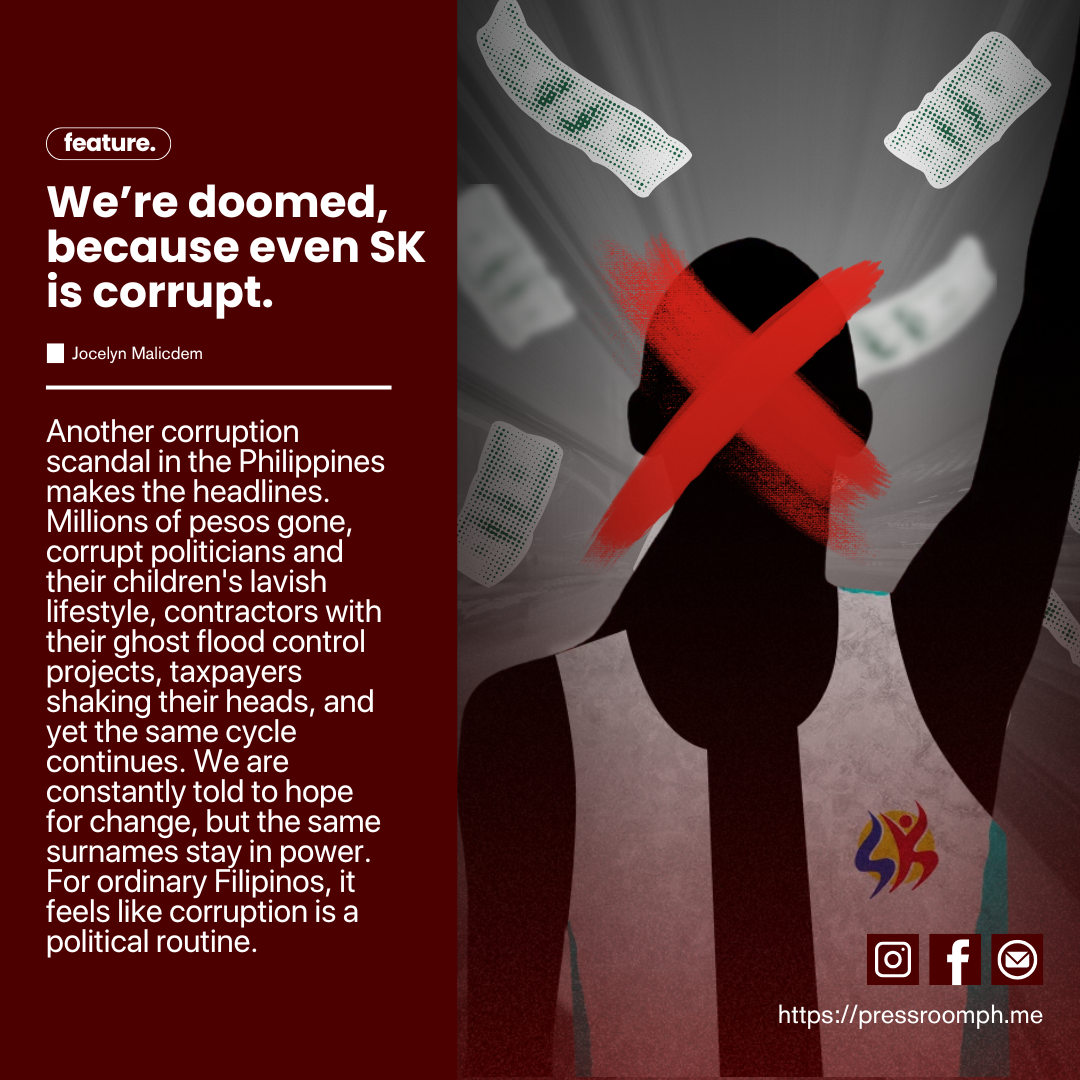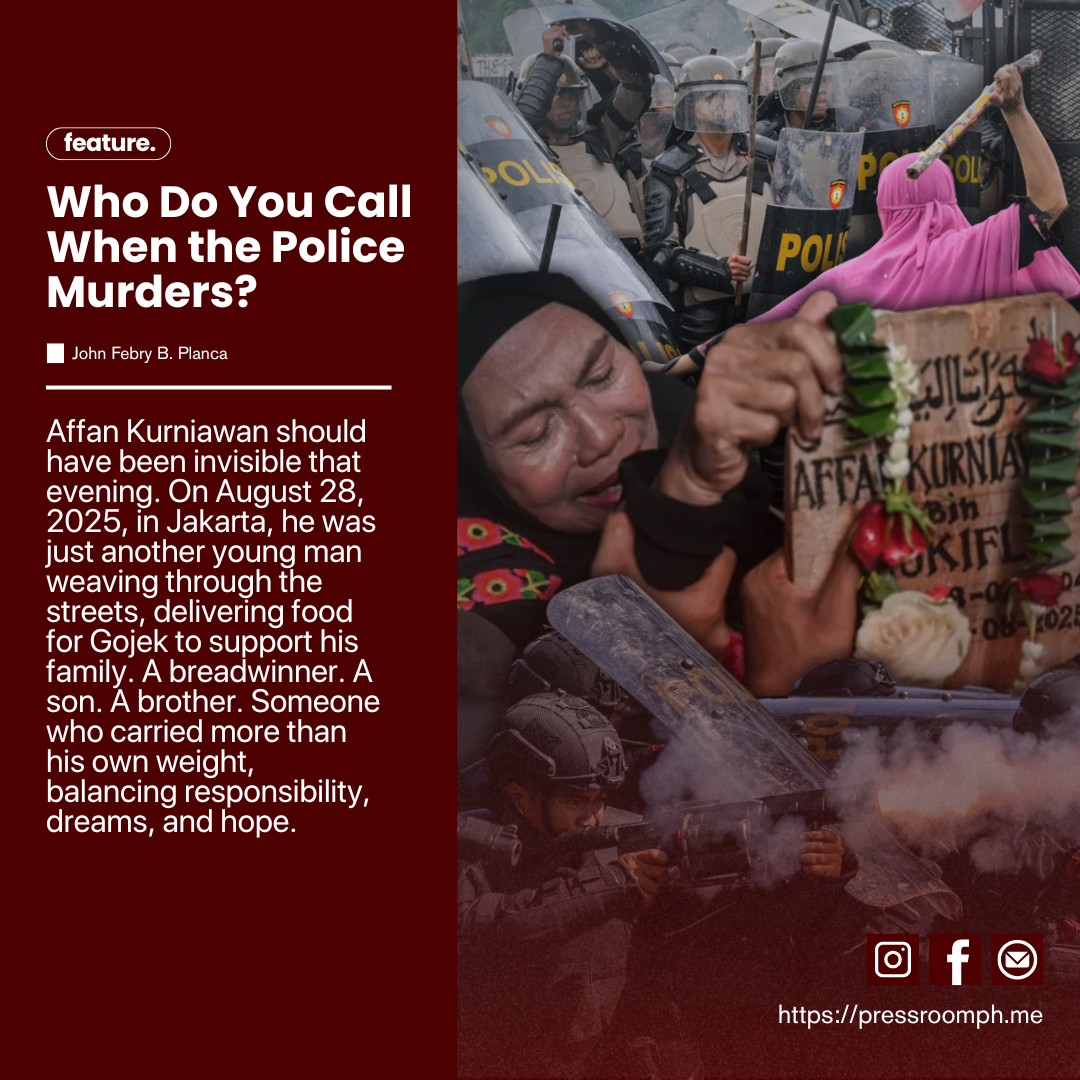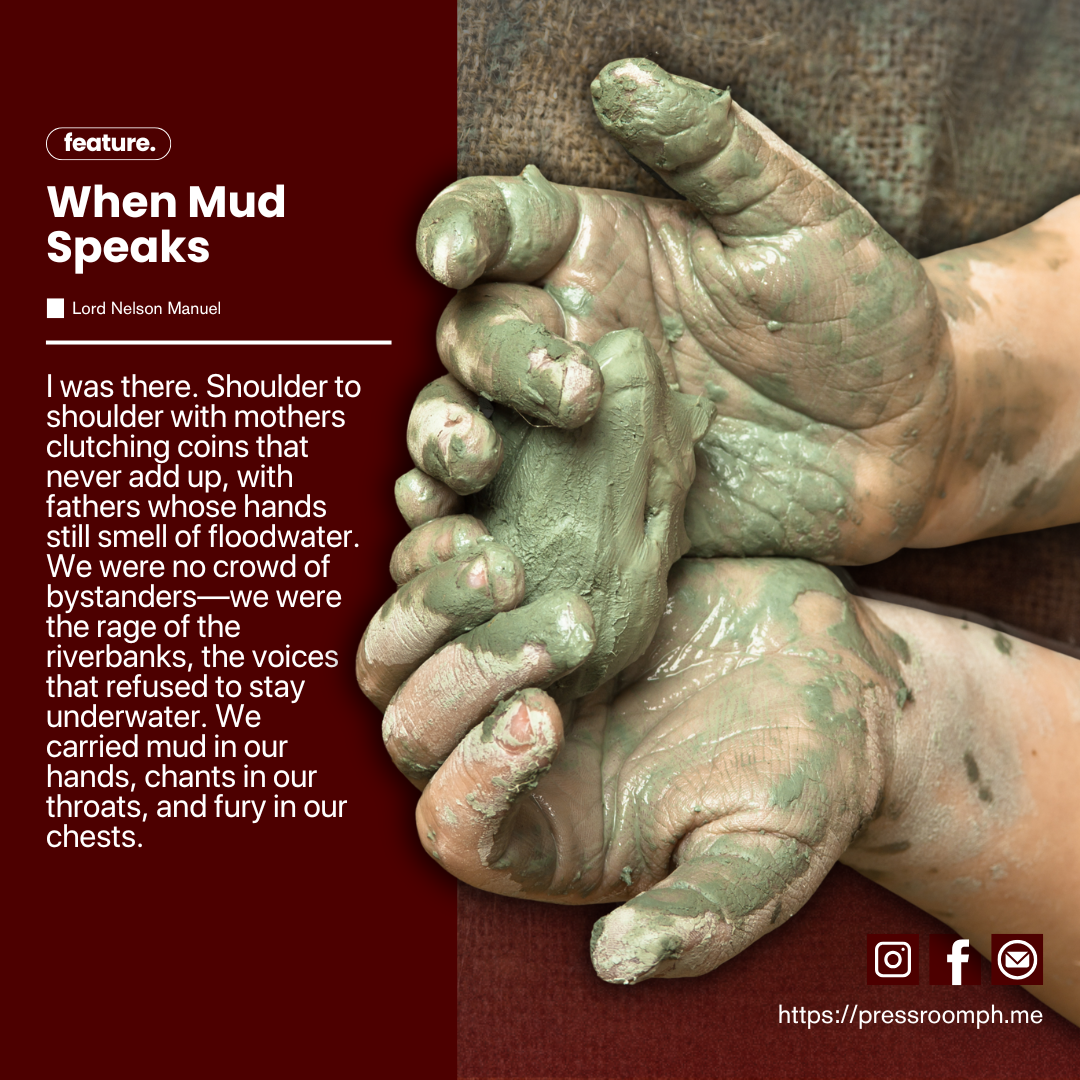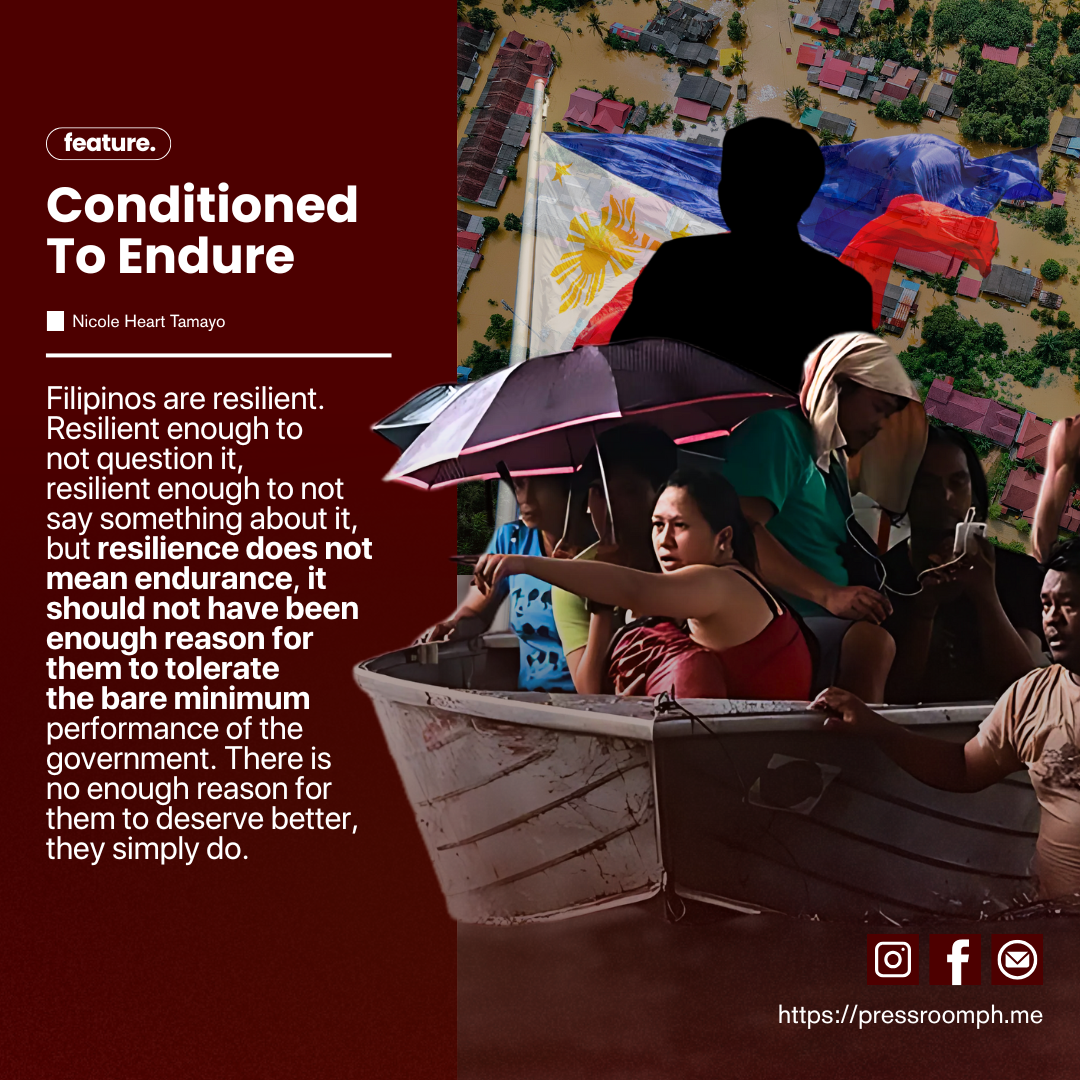Another corruption scandal in the Philippines makes the headlines. Millions of pesos gone, corrupt politicians and their children's lavish lifestyle, contractors with their ghost flood control projects, taxpayers shaking their heads, and yet the same cycle continues. We are constantly told to hope for change, but the same surnames stay in power. For ordinary Filipinos, it feels like corruption is a political routine.
But what makes this reality even more disappointing is when corruption seeps into the very space meant to give us hope: the Sangguniang Kabataan.
SK was created to train young leaders, to give the youth a voice in the government, and to prove that the next generation could do better than the traditional politicians before them. It was supposed to be our clean slate, our chance to show that politics could be different. Yet in many barangays, reports of funds being mishandled, projects not being delivered, and officials treating their posts as stepping stones for influence and financial upscale are becoming frequent.
We have seen cases where SK budgets for sports or educational programs disappear without clear reports. There are stories of SK officials hosting ‘projects’ that are unfinished, creating budgets for inventories that exist only on paper, or using funds for personal gain. These very same patterns of corruption that plague higher offices are being mirrored in our youth councils. And that is alarming, because if the young are already corrupted this early, what future are we heading toward?
Some say that this is just how the system works. That even if you start with good intentions, once you taste power and money, it changes you. But that excuse should never be normalized. If SK is meant to prepare us for leadership, then what does it say if the lesson we are learning is how to cheat the system?
To be fair, there are a handful of SK officials that are not corrupt. Many are genuine, hardworking, and committed to serving their communities. They organize clean-up drives, scholarships, and feeding programs, and they do it with sincerity and transparency. But this shouldn't mean that we should just stay silent about those who are corrupt, because public service should never be treated like a game of influence and easy money.
The tragedy is not just in the corruption itself but in the message it sends: that the cycle of dirty politics is unbreakable. If even the youngest leaders fall into the trap, where is our hope? We say the youth is the hope of the nation, but what happens when the hope itself gets tainted?
We are doomed, because even SK is corrupt. But perhaps the bigger doom is if we stop demanding better. Because the moment we accept corruption as “normal,” then we are not just doomed. We are defeated.




